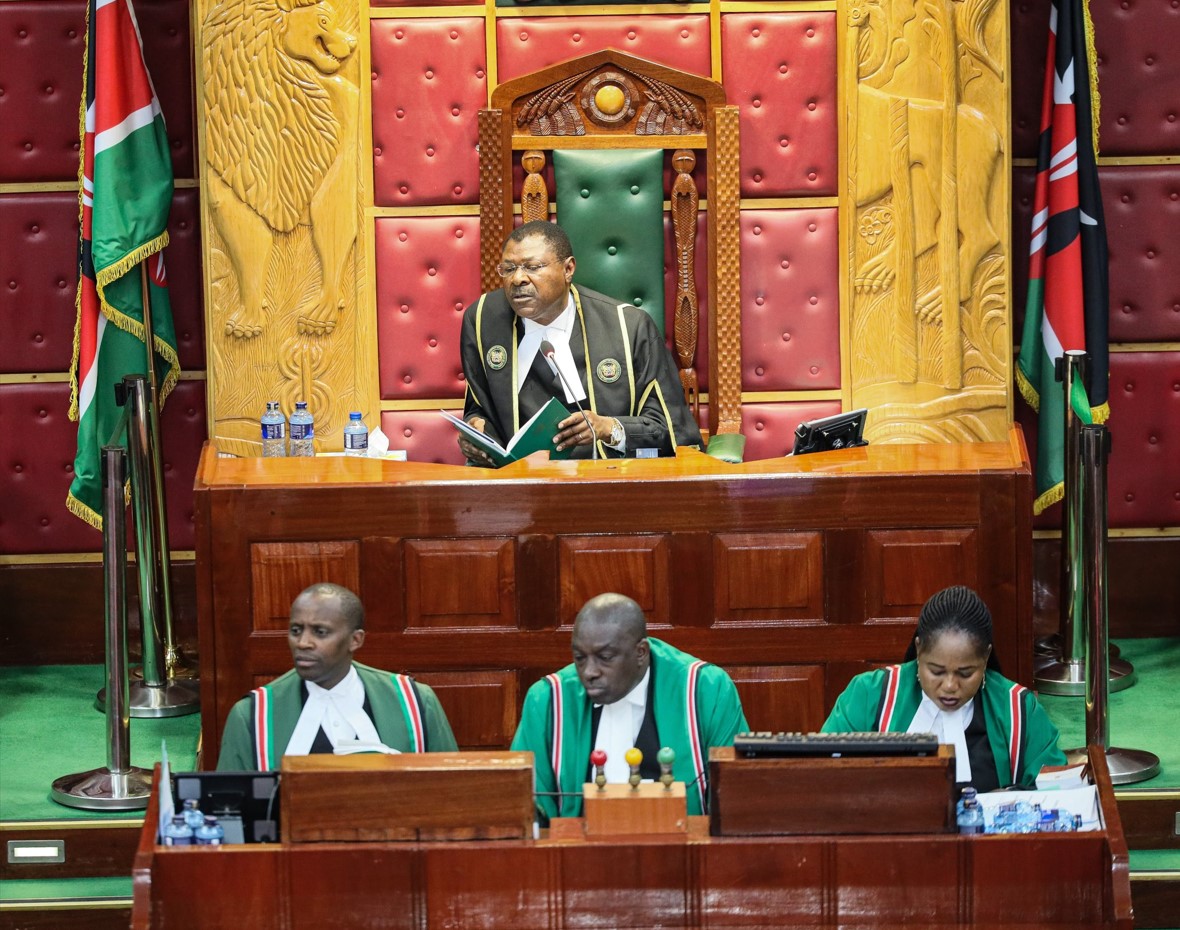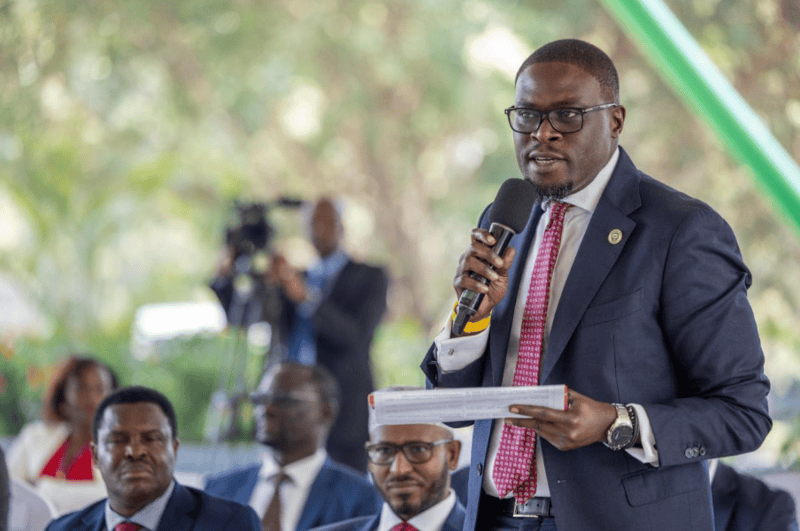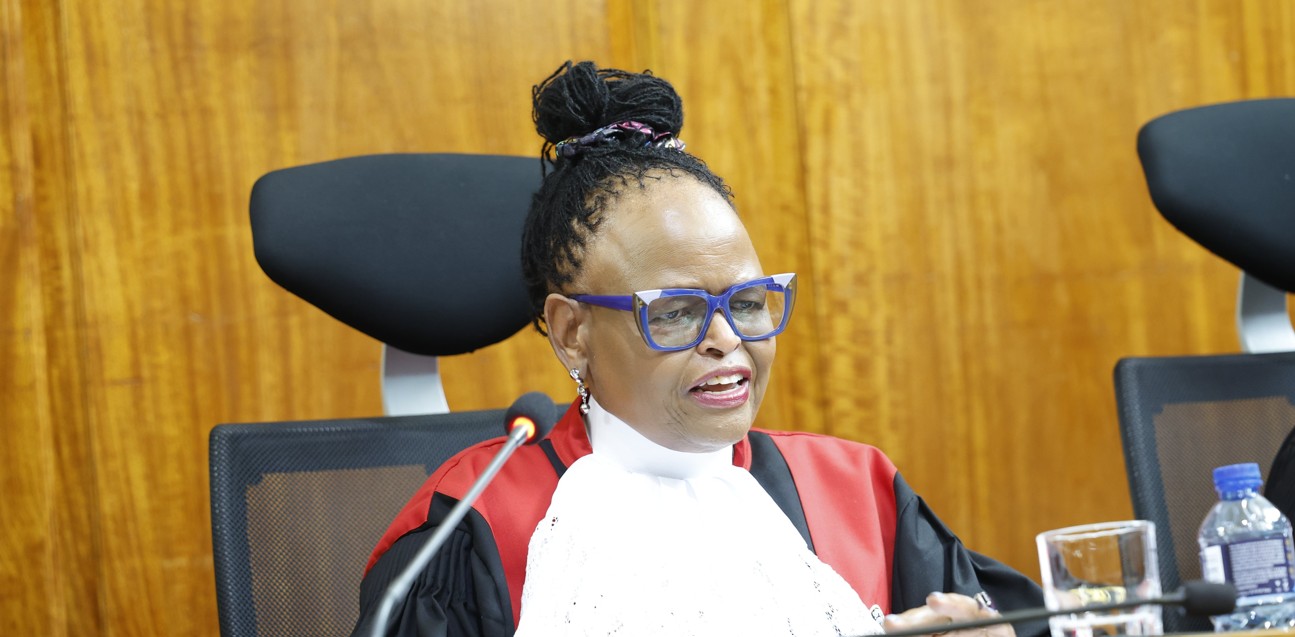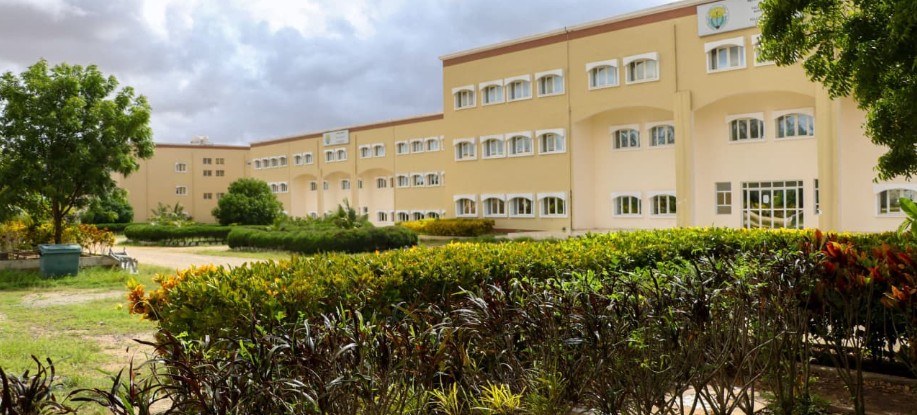MPs in sharp division over petition outlawing suicide

While some lawmakers argued that decriminalisation of suicide is timely, others said that the decision will encourage more Kenyans to take their own lives.
Members of Parliament appeared to be divided on Tuesday over a petition brought to the National Assembly by Speaker Moses Wetangula to decriminalise suicide in the country.
The petition by Lukoye Atwoli, the Professor and Dean at Aga Khan University Medical College, is sending a passionate appeal to parliament to consider changing the law and get rid of articles that consider suicide attempts a crime.
More To Read
- MPs to hold public hearings on proposed sale of 15 per cent Safaricom stake to Vodacom
- Nominated MP Denar Hamisi is dead, National Assembly confirms
- MPs push progressive mental health reform, dropping jail terms for suicide survivors
- Wetang’ula decries 'disruptive' conservatory orders, urges judicial restraint
- KEPSA calls on Parliament to enact reforms to stabilise public universities after 49-day lecturers’ strike
- Parliament to fast-track electoral laws ahead of 2027 polls, says Wetang’ula
While some lawmakers argued that decriminalisation of suicide is timely, others said that the decision will encourage more Kenyans to take their own lives. Others went further to claim that allowing decriminalisation is not religious.
"Honorable Members, the Petitioner holds that criminalising suicide attempts not only fails to address underlying mental health issues but also perpetuates stigma and shame surrounding mental illness. This is despite the provisions of section 2 of the Mental Health Act (Cap 248) which defines includes in its interpretation of a person with mental illness as a person with suicidal ideation or behaviour. Moreover, it inhibits accurate data collection and hinders suicide prevention efforts," read part of the petition.
According to Atwoli, Kenya remains one of the few countries with such legislation criminalising attempted suicide. He avers that several countries decriminalised attempted suicide allowing mentally ill patients access to the services they require.
Kilgoris MP Julius Sunkuli supported the petition, saying that the majority of people who are committing suicide need help and not punishment. "Attempted suicide is one of the two offences where if you do not succeed in committing the first then you are punished. We should use psychiatric knowledge to address this problem," he argued.
However, Kilifi North lawmaker Owen Baya disagreed, explaining that life should be preserved and that God did not intend for people to kill themselves or be killed.
"We will be picking people dead in the streets if we allow this to happen. As a Christian I oppose this petition, " posed Baya.
Kamukunji MP Yusuf Hassan rose to warn the House not to take a religious angle when debating the issue. In his view, Hassan argued that the lawmakers should not at all mix people's religious beliefs and legislative processes.
"People committing suicide have psychological problems. Bringing Biblical or Koranic perspectives into this debate is not right," he said.
Kirinyaga Woman Representative Jane Maina, her Ndhiwa counterpart Martin Owino and Bondo's Gideon Ochanda called for more focus on the issue of mental health in the country. Maina lamented that mental health services in Kenya are prohibitively expensive, leaving many Kenyans unable to access them.
"We need to decentralise mental health services to the lowest level like primary health care," argued Ndhiwa's Owino.
According to Wetang'ula, the matters raised by the petitioner are well within the authority of the House. Further, he says the matters raised are not pending before any court of law, constitutional or legal body, therefore the petition has been subjected to the Public Petitions Committee for consideration.
"The Committee is required to consider the Petition and report its findings to the House and the Petitioner in accordance with Standing Order 227(2)," said Wetang'ula.
The petitioner, Atwoli, was elated by the sharp debate over his petition. "I am glad that the National Assembly has been moved by our petition to discuss mental health and the decriminalisation of suicide."
The World Health Organisation has an implementation guide featuring evidence-based recommendations. These include limiting access to means for suicide, responsible media reporting, promoting life skills in adolescents, and increasing access to care for individuals expressing suicidal behaviour.
The Kenyan government has taken a proactive stance coming up with a comprehensive suicide prevention strategic plan (2021-2026) to reduce suicide mortality by 10 per cent by 2026.
Statistics from WHO estimate Kenya's crude suicide rate at 6.1 per 100,000 population with an age-standardised suicide rate of 11.0 per 100,000 population which translates to about four suicide deaths per day.
Top Stories Today













































